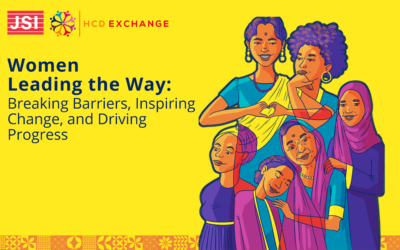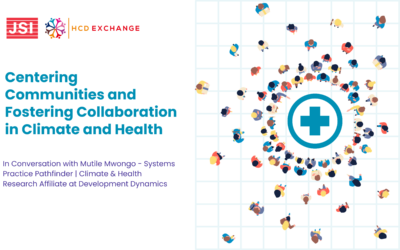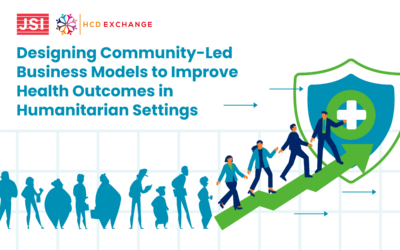By Belindar Kwamboka
‘Real-shit’ was my first encounter with the intricate world of social and behavior change (SBC). Crafted by social impact professionals from 17-triggers, ‘Real-Shit’ is an SBC campaign thoughtfully developed to provoke emotions – shame and disgust – to achieve behavioral change.
While Cambodia had a glaring problem of human waste and poor latrine uptake, communication materials to discourage this behavior often portrayed human waste playfully. In other instances, communicators used animated graphics to encourage the uptake of latrine use. These initial interventions failed to address the challenge because they needed to accurately capture Cambodian communities’ situation.
The ‘real-shit’ campaign model was designed with graphic images of real human waste to de-romanticize poop. This “real” representation of a societal disaster enabled Cambodians to take up improved latrines, thus averting the poop problem. The success of this campaign, rooted in behavioral science principles, piqued my interest in SBC.
Our colleagues at USAID define SBC as an approach that uses systematic insights into why people behave the way they do, and how behaviors change to effect positive outcomes for and by specific groups of people. Johns Hopkins University supports the idea that communication is key to SBC. They affirm that SBC can help people adopt healthy behaviors, overcome social and structural barriers, and improve their lives and those of their families and communities. At the heart of UNICEF’s organizational strategy, SBC is about understanding the needs of individuals and communities to develop context-specific, people-centered solutions.
At JSI, our approach to people-centered change is underpinned by behavior integration. We combine social, ecological, and behavioral applied sciences with innovations from marketing, design, tech, and other sectors to help people live healthier lives. We work alongside communities, governments, and those often excluded from conversations to ensure change efforts are people-centered. We do this by working with them to gather insights and co-create behavior-integrated strategies that spur people to action and ensure change that lasts.
Even with our diverse perspectives and definitions of SBC, we can see that the harmonizing denominator is our collective commitment to positively change lives while ensuring that people’s pain points, realities, and needs are put at the center of our initiatives. It has taken years of inspiring positive behavior, documenting case studies and positive outcomes achieved across Africa, and our continuous commitment to this field to have a harmonized language on SBC.
However, what we now know as SBC has undergone significant evolution over the years. The foundation focused on providing individuals and communities with information to promote healthy behaviors, also known as health education. The growth in this space bore Information, Education, and Communication materials, marking the start of more structured public health communication.
Over time, growing from just health to development, professionals referred to this approach as Communication 4 Development (C4D), understood widely as an evidence-based process utilizing multi-channel communication tools to facilitate participation and engagement with children, families, communities, and networks for positive social and behavior change. Progressively, this evolved into BCC and then into social and behavior change communication (SBCC) which was now grounded on the use of data and evidence-based approaches to analyze challenges, define barriers, and identify motivators of change, in order to design a comprehensive set of tailored interventions that promote the desired behaviors. These earlier adaptations have shaped our shared commitment – a shift from SBC-C to the entire field of SBC – making people-centered change happen in our diverse capacities.
Sadly, this evolution in approach is not reflected in the professionalization of this field. We continue to struggle with systemic challenges such as the misalignment of theory and practice; degree programs and courses need to have a sweet spot to help young people like myself settle into SBC roles. For instance, public health practitioners have yet to be consistent with integrating behavior change into their technical expertise despite having SBC training as part of their academic programs.
Indeed, looking from the fence, it would be misconstrued that SBC practice is a patchwork of different focus areas that have somehow been stitched together to achieve a common goal. It is accurate that practitioners in SBC are from varied courses, including sociology, anthropology, Behavior Economics, Public health, Communications, and many more.
Why do we have this gap? Why do we have professionals studying modules and subsets of SBC instead of a dedicated graduate program that comprehensively covers the theories and principles of SBC?
I muse about this while also recognizing efforts like Breakthrough Action’s SBC Learning Central, and the partnership between the Center for Behavior Change and Communication (CBCC) and the United States International University to offer a five-week training program. South Africa’s UNISA also offers a Postgraduate Diploma and Bachelor’s Degree in Social and Behavioral Studies in HIV-AIDS. There is no doubt that these efforts are moving the needle towards the advancement of knowledge.
We must, however, ask ourselves whether the current crumb-like knowledge advancement structure is sufficient to equip the aspiring generation of SBC professionals. Are we doing enough to pass the knowledge forward? When we consider the incredible gains from TV Programmes like MTV Shuga, which contextualized the dilemmas and social complexities of negotiating safer sexual and lifestyle decisions among youth to curb the spread of HIV in sub-Saharan Africa, aren’t we inspired to ensure that 10 years from now, we continue to have life-changing initiatives co-developed with qualified professionals?
I challenge all professionals within the SBC ecosystem—lecturers, educators, practitioners, curriculum developers, researchers, and funders—to step onto the stage and take a central role in co-developing SBC courses with young people in mind. I advocate for the adoption of these courses into academic curriculums in all universities across Africa as graduate programs. This will give more young people an intentional path into an SBC career.
SBC is not just a career choice! It’s a fulfillment of our primary duty as a people – positively touching the lives of those in our societies.
Disclaimer: This is a speech written and delivered at the Africa SBC Summit 2024 by Belindar Kwamboka, HCDExchange’s Communications Associate.




